 | ||||||||
|
|
|
How Mouthpieces Achieve Certain Tones MOUTHPIECES. Your mouthpiece is the most crucial element in the creation of your sound. The mouthpieces we play:~ American Otto Links... metal/ebonite... alto and tenor, British Lawtons... metal... alto and tenor, American Meyers… ebonite… altos Good beginners' mouthpieces such as the Yamaha 4C. The Otto Link mouthpiece. 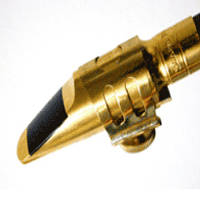 These are beautifully shaped gold metal and black ebonite mouthpieces. The sound of Otto Link is massive, gorgeous, sleazy and lewd. For a taste of its capability listen to Ben Webster or Stanley Turrentine on metals or 'the beautiful sound' of Stan Getz on ebonite. Blowout Sax's Stan Scott uses an Otto Link 7* on his Borgani tenor (the Joe Lovano model). It offers a punchy, strong tone with plenty of warmth and Stan reckons it is probably the most versatile mouthpiece around. Check out Stan’s tracks on ‘get playin’ These are beautifully shaped gold metal and black ebonite mouthpieces. The sound of Otto Link is massive, gorgeous, sleazy and lewd. For a taste of its capability listen to Ben Webster or Stanley Turrentine on metals or 'the beautiful sound' of Stan Getz on ebonite. Blowout Sax's Stan Scott uses an Otto Link 7* on his Borgani tenor (the Joe Lovano model). It offers a punchy, strong tone with plenty of warmth and Stan reckons it is probably the most versatile mouthpiece around. Check out Stan’s tracks on ‘get playin’
The Great British Lawton mouthpiece. 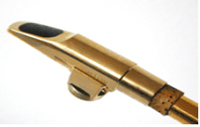
Mark says this mouthpiece, which was made and created by the late Geoff Lawton himself, with its rocket-shaped design, produces a firework of sounds, stunning in volume and ease of playing. The Lawton has a spectacular kick and, with time, a diversity of tone, but overall has a more brilliance of tone than the Otto Link. Check out Berry’s tracks on ‘get playin’. Craig Crofton says that Lawton gives you a versatile sandwich which can be used for playing anything from rock/funk to jazz. He also says one can still get a puffy sound on the bottom end and sharp sound up top. It has a brilliant rich tone and offers varying degrees of sharpness: * = normal *B = more edge *BB = really edgy Craig also says that you have to be careful if you are changing from an ebonite mouthpiece to a Lawton. It may take you several months to get used to it. You need to have your embouchure well developed to switch to all metal mouthpieces, and this is especially true of a Lawton. These can be found on Ebay. The Stateside Meyer mouthpiece. 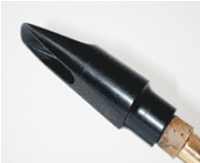 Craig says the Meyer is the perfect all round alto mouthpiece. It is particularly good for students to start using when they have been playing the sax for six months to a year. Its open bore design provides a fullness of sound and ease of playing that makes it a perfect choice. Meyers were used by the great Cannonball Adderley and Lou Donaldson. Craig and Stan Scott have always played Meyer ebonites on alto sax. They're versatile with a full warm sound. He currently plays a Meyer 7 which is one up from the Meyer played by the late great Art Pepper. Craig says the Meyer is the perfect all round alto mouthpiece. It is particularly good for students to start using when they have been playing the sax for six months to a year. Its open bore design provides a fullness of sound and ease of playing that makes it a perfect choice. Meyers were used by the great Cannonball Adderley and Lou Donaldson. Craig and Stan Scott have always played Meyer ebonites on alto sax. They're versatile with a full warm sound. He currently plays a Meyer 7 which is one up from the Meyer played by the late great Art Pepper.
Check out Stan playing on You Tube on ‘Caravan.’ Patches 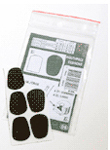 BG produce black patches that some saxophonists like to put on their mouthpieces.
BG produce black patches that some saxophonists like to put on their mouthpieces.
The advantage is your two front teeth are then resting in the same place every time you blow - these are especially good for metal mouthpieces as the taste of metal on your teeth ain't always pleasant. Replace them when you begin to taste metal! |
|

|
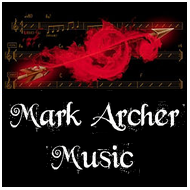
|

|

